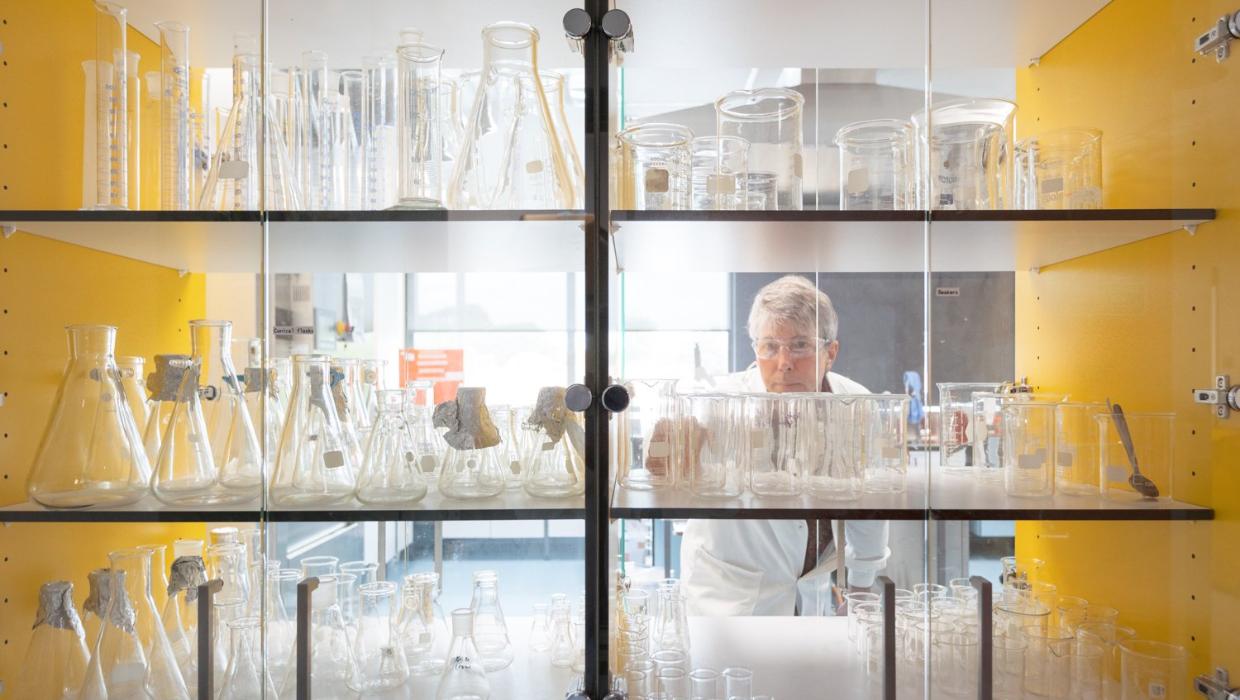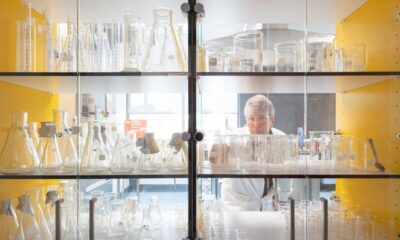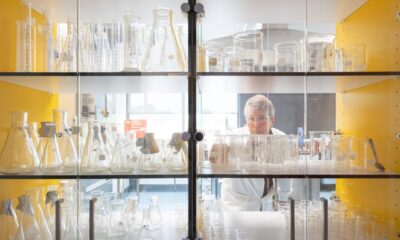Science
New Zealand Secures Over $20 Million for Innovative Research Initiatives

The Bioeconomy Science Institute, a collaboration of several leading research organizations in New Zealand, has secured over $20 million from the Endeavour Fund to support two transformative research programs. These initiatives aim to enhance the country’s food, biotechnology, and horticultural sectors, thereby increasing export potential and reducing food waste.
The first program, titled Super-Storing: Extending the Life of NZ’s Perishable Fruits, has been allocated $10.2 million. Led by Associate Professor Robert Schaffer and Dr. Rosie Schröder, the project seeks to replicate the long storage life of kiwifruit in other perishable fruits, including summer fruit and berries. By utilizing advanced gene technologies, the research team plans to enable these crops to be stored and transported via sea to markets in Asia and Europe.
Currently, New Zealand’s fresh fruit exports generate approximately $3.5 billion annually, with kiwifruit and apples being the main contributors. This research aims to diversify the horticultural sector and supports the New Zealand Government’s objective of increasing export values from $7 billion to $12 billion per year. The initiative is anticipated to contribute over $600 million in additional domestic economic activity while also promoting sustainability by reducing food waste and lowering emissions through the replacement of air freight with sea freight.
“This work will directly benefit growers, extend harvest windows, and build resilience against extreme weather,” said Schaffer. “It’s about unlocking the full potential of New Zealand’s horticultural diversity.”
Turning Waste into High-Value Proteins
The second research initiative, Turning Pine Waste into Premium Proteins, is a five-year project with a budget of $10.4 million. Spearheaded by Dr. David Hooks and Dr. Scott Knowles, the program focuses on harnessing Precision Fermentation (PF) to convert pine forestry residues into high-value proteins. This approach seeks to transform softwood residues, often discarded or burned, into fermentation feedstocks using innovative chemoenzymatic methods.
These feedstocks will cultivate engineered yeast strains that can produce specialty proteins such as osteopontin and casozepine, mimicking the nutritional and functional benefits of traditional animal-derived ingredients. This program is aligned with New Zealand’s goal of transitioning to a low-emission circular bioeconomy.
“This is more than a research program,” Dr. Hooks emphasized. “It’s a blueprint for how New Zealand can lead in the next generation of food and biotech innovation. This is about creating value from what we already have. New Zealand has abundant bioresources and world-class science. Precision Fermentation allows us to connect the two.”
Dr. Knowles added that by converting forestry residues into feedstocks, the research is establishing a new pathway for sustainable protein production, which aligns with global efforts to build climate-resilient food systems. The researchers anticipate several innovations from this program, including novel enzymes for converting lignocellulosic biomass into fermentable sugars and advancements in yeast engineering for high protein expression.
Strengthening the Bioeconomy Landscape
The Bioeconomy Science Institute emerged as a result of an initiative to enhance the effectiveness of New Zealand’s research landscape. Earlier this year, the Government announced plans to merge seven Crown Research Institutes into four new Public Research Organizations, consolidating resources and expertise to maximize impact.
By uniting AgResearch, Manaaki Whenua – Landcare Research, Plant & Food Research, and Scion, the Bioeconomy Science Institute has positioned itself as the largest research organization in New Zealand. During a recent visit to the Lincoln campus, Hon Shane Reti, Minister of Science, Innovation and Technology, unveiled the institute’s new visual identity, highlighting its mission to benefit both New Zealand and the global community.
Transition chief executive Mark Piper expressed enthusiasm about this new chapter, stating, “As we start our journey as the Bioeconomy Science Institute, it’s great to share this new visual identity which speaks to the organization that we are building.”
Furthermore, Minister Reti announced an additional $6.5 million in industry funding aimed at developing methods to reduce methane emissions from grazing livestock. He also witnessed the signing of a new licensing agreement with Nelson-based Seaweave to commercialize aquaculture monitoring technology.
This combination of initiatives not only promises to advance New Zealand’s food and biotech sectors but also sets a precedent for sustainable practices in the research community, paving the way for future innovations.
-

 Sports2 months ago
Sports2 months agoNetball New Zealand Stands Down Dame Noeline Taurua for Series
-

 Entertainment2 months ago
Entertainment2 months agoTributes Pour In for Lachlan Rofe, Reality Star, Dead at 47
-

 Entertainment4 weeks ago
Entertainment4 weeks agoNew ‘Maverick’ Chaser Joins Beat the Chasers Season Finale
-

 Sports2 months ago
Sports2 months agoSilver Ferns Legend Laura Langman Criticizes Team’s Attitude
-

 Sports3 days ago
Sports3 days agoEli Katoa Rushed to Hospital After Sideline Incident During Match
-

 Politics1 month ago
Politics1 month agoNetball NZ Calls for Respect Amid Dame Taurua’s Standoff
-

 Entertainment2 months ago
Entertainment2 months agoKhloe Kardashian Embraces Innovative Stem Cell Therapy in Mexico
-

 World3 months ago
World3 months agoPolice Arrest Multiple Individuals During Funeral for Zain Taikato-Fox
-

 Sports3 months ago
Sports3 months agoGaël Monfils Set to Defend ASB Classic Title in January 2026
-

 Entertainment1 month ago
Entertainment1 month agoTyson Fury’s Daughter Venezuela Gets Engaged at Birthday Bash
-

 Sports1 month ago
Sports1 month agoHeather McMahan Steps Down as Ryder Cup Host After Controversy
-

 World2 weeks ago
World2 weeks agoSevere Winds Hit New Zealand, Over 100 Flights Canceled


















